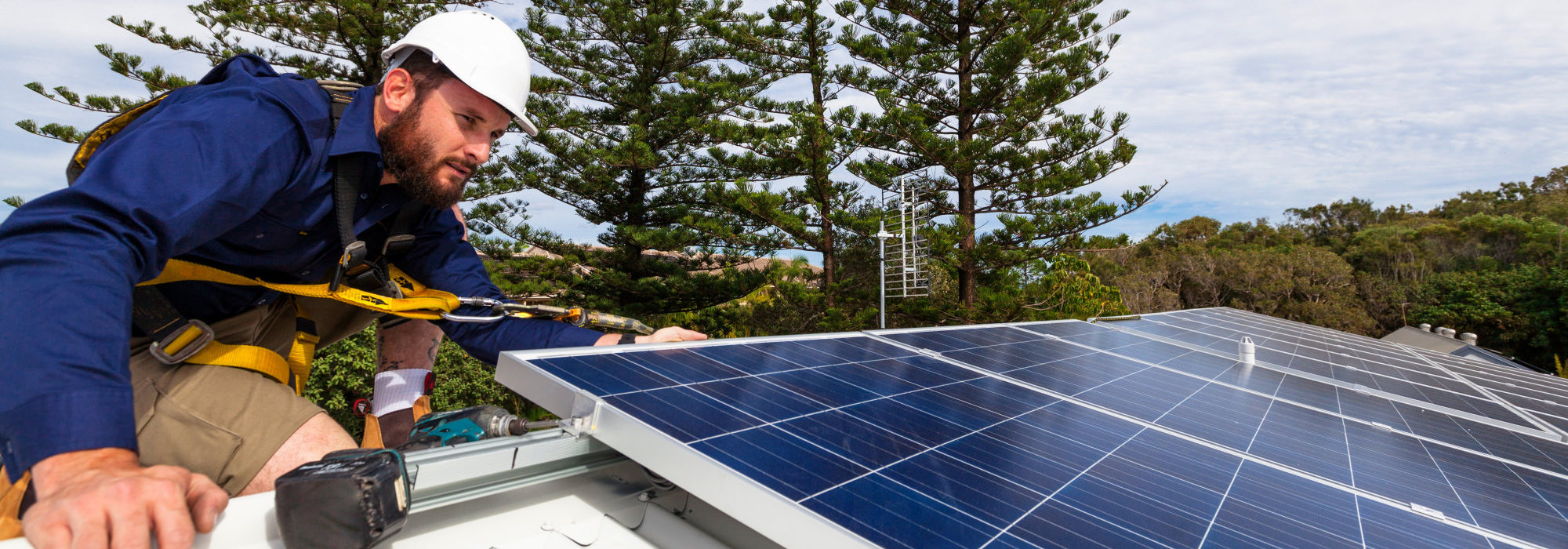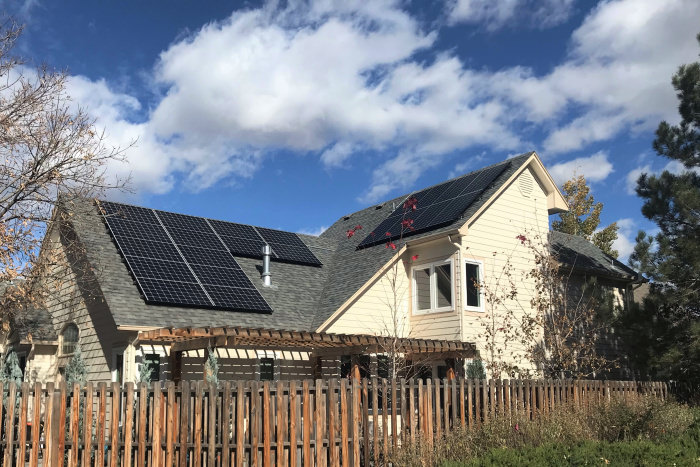 /wp-content/uploads/2021/10/fall_solar_sale-495x330-1.png
330
495
Chris Allis
/wp-content/uploads/2021/06/ecomark-solar-logo-with-panel.png
Chris Allis2021-10-27 13:26:042021-11-22 13:33:46Eight Reasons Fall is the Best Time to Order Solar
/wp-content/uploads/2021/10/fall_solar_sale-495x330-1.png
330
495
Chris Allis
/wp-content/uploads/2021/06/ecomark-solar-logo-with-panel.png
Chris Allis2021-10-27 13:26:042021-11-22 13:33:46Eight Reasons Fall is the Best Time to Order SolarRooftop residential solar is a vital part of helping replace fossil fuels and combating climate change.
It is vital to replace fossil fuels because they currently produce the majority of the world’s energy. Although the environmental hazards of burning coal and other fossil fuels are widely known, the global community has been slow to adopt solar energy and other alternative power sources on a broad scale. Converting to solar was once written off as a radical shift, especially since fossil fuel industries are well-established and dominate global energy markets.
However, solar power has become increasingly cost effective and technologically efficient. As consumers witness the evidence of climate change and become more concerned about the health of the natural environment, they are seeking out different ways to power their homes. You can discover new options that benefit the planet and your own household budget. It seems not only possible, but actually probable, that the world will make a dramatic shift to green technologies like solar in the coming years.
Why Should I Care about replacing fossil fuels?
Burning fossil fuels is a major factor driving climate change. The earth is wrapped in a layer of greenhouse gases that maintains ideal environmental conditions. When this layer is changed even slightly, significant harm occurs to plant and animal species. According to the World Wildlife Fund, burning coal, oil and natural gas releases carbon dioxide (CO2) into the atmosphere, and excess CO2 emissions thicken the layer of greenhouse gases, trapping the heat inside and raising the earth’s global temperature. Scientific American reported in 2014 that global temperatures may rise significantly by 2036, to the point of causing harm to human civilization.
Given this background, it’s important to understand the environmental impact of solar energy. Solar doesn’t come with the environmental baggage associated with fossil fuel production. Unlike nuclear power and other alternatives, solar is free of hazardous waste, which, even though it’s regulated, still ends up improperly stored and disposed. This makes solar and excellent replacement for fossil fuels. In addition to emitting absolutely no CO2, solar electricity doesn’t cause water pollution. Since traditional power plants require cooling, they use massive amounts of water. Seventy-two percent of water pollution in the United States comes from coal-fired plants according to the Environmental Protection Agency.
Come see what the rising cost of electricity means for you.
Does the Sun Produce Enough Solar Energy?
Solar energy isn’t just environmentally sound; it’s also practical. The sun sends a massive amount of energy to the earth, about 10,000 times as much as the globe currently consumes. That means that global communities need only collect 1 percent of the sun’s total energy to fulfill their daily energy needs. These statistics aren’t merely theoretical. Solar panels have vastly increased in efficiency as their use has become more common in commercial and residential areas, so this promising math can easily translate into reality.
According to a German study, it would take only a 254-square-kilometer area of solar panels in the Sahara Desert to power the entire world. This study assumes the panels are 100 percent efficient, a rate not yet achieved but definitely on the horizon as the technology continues to advance. Solar is powerful, abundant and pollution-free. That cheap calculator you have in your desk is probably powered by light. You can use this same technology to heat your home.
The sun is an inexhaustible source of energy, and solar panels are quite easy to set up and maintain. This makes solar electricity the power source of your future.
What About Solar Energy Storage?
Of course, the sun only shines so many hours of the day. Some areas receive little sunlight during long winter seasons. But there are advancements being made in storage technology that would ensure not only efficiency in capturing solar energy, but also in preserving it for those times of darkness. Finding ways to provide a continuous and string stream of energy is a challenge to replacing fossil fuels, which is why storage is so important. Currently, homeowners with solar panels tend to harness more energy than they can use during daylight hours, but they can take advantage of net metering strategies, whereby their excess energy is fed back into the power grid. These consumers get a credit for the energy they provide to their neighbors, which they use when their panels aren’t producing solar energy.
Net metering is one way you can save money on your power bills. It also provides for better energy-use planning on a larger scale because it encourages the use of energy as it’s produced. It’s less money out-of-pocket not just for you, but also for organizations that make a large-scale commitment to solar panels. According to the Solar Energy Industries Association, public institutions in California will save $2.5 billion over 30 years as a result of net metering.
Learn More About Your Solar Energy and replacing fossil fuels.
Solar energy has become cheaper for homeowners in the past few years. As the industry has exploded, prices have dropped sharply. Government initiatives such as tax credits for installation and low-interest loans for renewable energy projects provide great incentives for you to assess the budgetary advantages of using solar power. In Colorado, families who love the natural beauty of the region need little convincing when they learn of the environmental benefits of this reliable and innovative technology.
Explore more commonly asked questions about solar energy, and see how you can avoid the rising costs of electricity with solar energy.
Related Articles:
 /wp-content/uploads/2021/10/fall_solar_sale-495x330-1.png
330
495
Chris Allis
/wp-content/uploads/2021/06/ecomark-solar-logo-with-panel.png
Chris Allis2021-10-27 13:26:042021-11-22 13:33:46Eight Reasons Fall is the Best Time to Order Solar
/wp-content/uploads/2021/10/fall_solar_sale-495x330-1.png
330
495
Chris Allis
/wp-content/uploads/2021/06/ecomark-solar-logo-with-panel.png
Chris Allis2021-10-27 13:26:042021-11-22 13:33:46Eight Reasons Fall is the Best Time to Order Solar
How to Get 10x Value from Your Solar Panel System with Storage

Make Power Outages a Thing of the Past For The Future of Your Home
 /wp-content/uploads/2021/06/colorado-solar-panels-in-the-rockies.jpg
700
2000
Max Cowles
/wp-content/uploads/2021/06/ecomark-solar-logo-with-panel.png
Max Cowles2021-07-16 17:15:352021-07-20 12:33:024 Things They Don’t Want You to Know About Solar Energy
/wp-content/uploads/2021/06/colorado-solar-panels-in-the-rockies.jpg
700
2000
Max Cowles
/wp-content/uploads/2021/06/ecomark-solar-logo-with-panel.png
Max Cowles2021-07-16 17:15:352021-07-20 12:33:024 Things They Don’t Want You to Know About Solar Energy /wp-content/uploads/2021/07/colorado-solar-panel-installation-2000-700.jpg
700
2000
Max Cowles
/wp-content/uploads/2021/06/ecomark-solar-logo-with-panel.png
Max Cowles2021-07-16 16:57:582021-07-21 01:56:43Winter Solar Panel Maintenance Tips
/wp-content/uploads/2021/07/colorado-solar-panel-installation-2000-700.jpg
700
2000
Max Cowles
/wp-content/uploads/2021/06/ecomark-solar-logo-with-panel.png
Max Cowles2021-07-16 16:57:582021-07-21 01:56:43Winter Solar Panel Maintenance Tips /wp-content/uploads/2021/08/how-solar-panel-installation-works-700x467-1.webp
467
700
Max Cowles
/wp-content/uploads/2021/06/ecomark-solar-logo-with-panel.png
Max Cowles2021-07-16 16:56:042021-08-16 18:48:15What is Net Metering, and How Does it Work?
/wp-content/uploads/2021/08/how-solar-panel-installation-works-700x467-1.webp
467
700
Max Cowles
/wp-content/uploads/2021/06/ecomark-solar-logo-with-panel.png
Max Cowles2021-07-16 16:56:042021-08-16 18:48:15What is Net Metering, and How Does it Work? /wp-content/uploads/2021/07/how-much-does-solar-cost-700467-1.jpg
467
700
Max Cowles
/wp-content/uploads/2021/06/ecomark-solar-logo-with-panel.png
Max Cowles2021-07-16 15:58:452021-07-21 02:30:34What happens when your solar system gets hit by hail?
/wp-content/uploads/2021/07/how-much-does-solar-cost-700467-1.jpg
467
700
Max Cowles
/wp-content/uploads/2021/06/ecomark-solar-logo-with-panel.png
Max Cowles2021-07-16 15:58:452021-07-21 02:30:34What happens when your solar system gets hit by hail? /wp-content/uploads/2021/07/best-solar-panel-installation-products-700467.jpg
467
700
Max Cowles
/wp-content/uploads/2021/06/ecomark-solar-logo-with-panel.png
Max Cowles2021-07-16 15:53:482021-07-21 02:09:17What Are the Financial Incentives for Going Solar?
/wp-content/uploads/2021/07/best-solar-panel-installation-products-700467.jpg
467
700
Max Cowles
/wp-content/uploads/2021/06/ecomark-solar-logo-with-panel.png
Max Cowles2021-07-16 15:53:482021-07-21 02:09:17What Are the Financial Incentives for Going Solar? /wp-content/uploads/2021/07/over-3500-installations-in-colorado-700-1.jpg
467
700
Max Cowles
/wp-content/uploads/2021/06/ecomark-solar-logo-with-panel.png
Max Cowles2021-07-16 15:51:492021-07-19 19:42:28What are Micro-Inverters and Optimizers?
/wp-content/uploads/2021/07/over-3500-installations-in-colorado-700-1.jpg
467
700
Max Cowles
/wp-content/uploads/2021/06/ecomark-solar-logo-with-panel.png
Max Cowles2021-07-16 15:51:492021-07-19 19:42:28What are Micro-Inverters and Optimizers?Categories
EcoMark Solar
Corporate Office
4665 Paris Street #300-C
Denver, CO 80239


